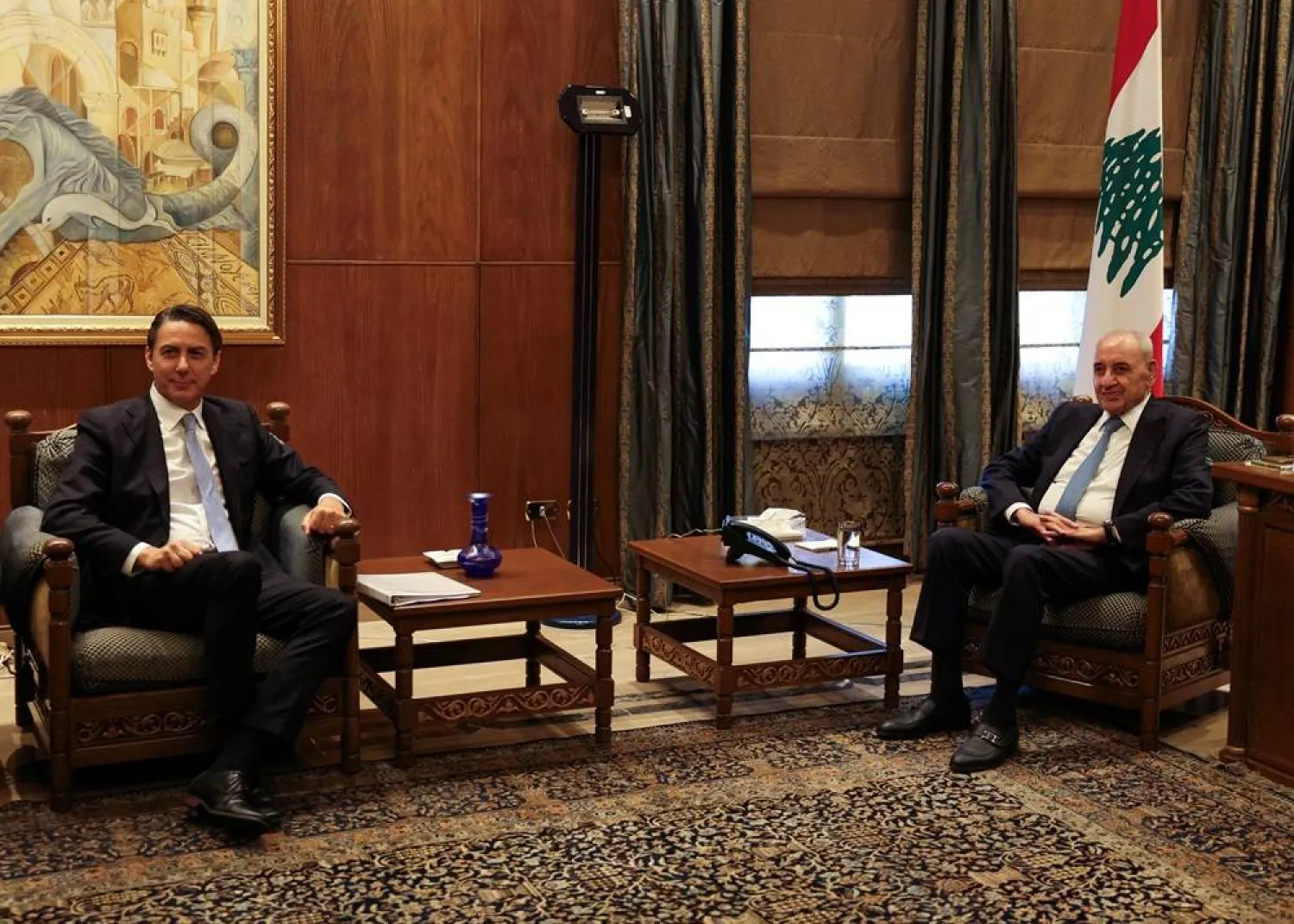A senior adviser to US President Joe Biden said Wednesday it's critical to take advantage of “this window for diplomatic action” to end the Israel-Hamas war in Gaza and ongoing hostilities along the Lebanon-Israel border, fearing that escalations could spiral "out of control.”
Amos Hochstein, tasked with shuttle diplomacy between Lebanon and Israel, spoke to journalists after meeting Lebanese Parliament Speaker Nabih Berri, as the region anxiously anticipates retaliatory attacks from Iran and the allied Lebanese Hezbollah group on Israel. Hochstein met with Israeli officials Tuesday.
Ceasefire talks between Hamas and Israel are expected to resume in Qatar on Thursday with Qatari, Egyptian, and US mediators.
Hezbollah and Israel have traded strikes since Oct. 8, a day after Palestinian Hamas militants' surprise attack into southern Israel that sparked the war in Gaza.
“The more time goes by of escalated tensions, the more time goes by of daily conflict, the more the odds and the chances go up for accidents, for mistakes, for inadvertent targets to be hit that could easily cause escalation that goes out of control,” Hochstein said.
An Israeli strike last month in southern Beirut killed Hezbollah’s top commander, whom Israel accused of leading a rocket attack on the Israeli-occupied Golan Heights that killed 12 youths. Hours later, an explosion widely blamed on Israel killed Hamas political leader Ismail Haniyeh. Both Tehran and Hezbollah vowed to retaliate.
Hochstein said he and Berri - a Hezbollah ally - agreed there were “no more valid excuses from any party for any further delay” on a ceasefire based on a framework Biden presented months ago.
“The deal would also help enable a diplomatic resolution here in Lebanon,” the envoy added.
A diplomatic official told The Associated Press that Hochstein during his meetings discussed plans for a long-term diplomatic solution for Lebanon and Israel that the US and France have been preparing after a ceasefire in Gaza is achieved. The official spoke on condition of anonymity in line with regulations.
Hochstein also met with Lebanon's caretaker Prime Minister Najib Mikati and Army chief Gen. Joseph Aoun.
Fighting continued as the meetings took place. Lebanon’s Health Ministry and state media said an Israeli airstrike targeting a motorcycle in the southern Lebanese village of Abbasiyeh wounded 17 people. Hezbollah later said its fighters fired rockets toward the northern Israeli town of Kiryat Shmona in retaliation. There were no immediate reports of injuries in Israel.
The “broad consensus” is that a ceasefire in Gaza would help bring calm to hostilities in Lebanon and elsewhere in the region, said Maha Yahya, the director of the Beirut-based Carnegie Middle East Center. She believes that Hezbollah and Iran did not expect the war in Gaza to continue for so long.
“Nobody counted on the fact that this would last 10 months and still going, with an increasing humanitarian toll,” she told the AP. “Put aside the rhetoric and public anger, which is very much there and not for show, they have been open to diplomatic back-channel discussion to try to resolve this.”
Yahya said Iran and Hezbollah not attacking over the past two weeks slightly dims the element of surprise, while the US military increases its naval reinforcements in the area and diplomatic discussion takes place.
If war breaks out between Hezbollah and Israel, it would be the first since a six-week war in the summer of 2006 ended in a draw. Hezbollah's military capabilities have developed significantly since then.
War would further devastate Lebanon, which already has a deeply divided government and a battered economy. Mikati's caretaker government has met to discuss an emergency response plan should war break out.
About 100,000 Lebanese people have been displaced from the country's south, a similar number to Israelis who fled the north there. Health Minister Firass Abiad has told the AP that donors need to step up their support given that Lebanon also hosts over 1 million Syrian refugees.
Environment Minister Nasser Yassin, who leads the emergency response plan, said 200 schools were being prepared as makeshift shelters.
“We estimate we might have one million displaced from Lebanese towns and cities in case they are under attack,” Yassin told the AP.









